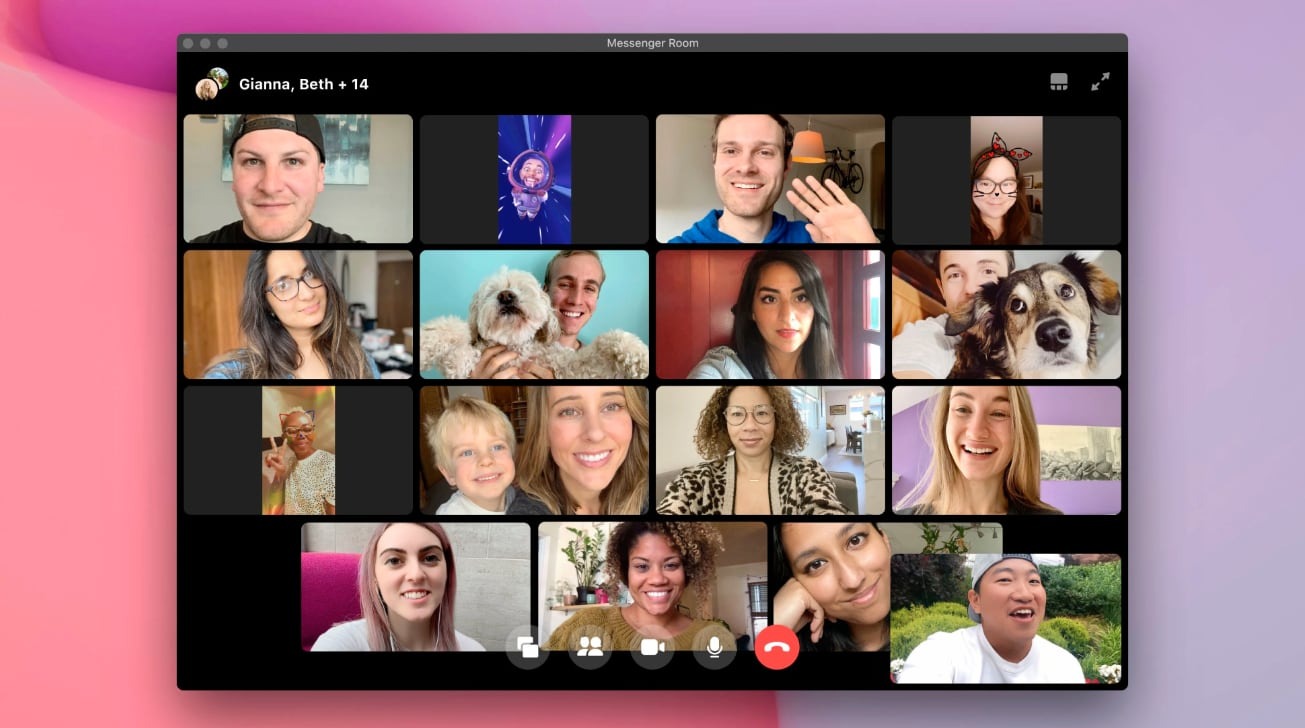Facebook is stepping into the mass video conferencing market with Messenger Rooms, a service that allows up to 50 people to connect via webcam that directly competes with other popular services like Zoom, Houseparty, and Group FaceTime.
Mass video conferencing services capable of hosting high numbers of people have become popular in recent weeks, due to the stay-at-home orders and a push for home working prompted by COVID-19. While Zoom has gained prominence as the main service people use to host large-scale webcam meetings, with Houseparty and Group Facetime also being used for similar purposes, Facebook has waded into the marketplace with its own take on the idea.
Messenger Rooms allows people to congregate in the same video call, with rooms soon to be capable of hosting up to 50 people with no time limit. This is up from the previous Messenger video call limit, which allowed up to eight people to converse.
Users will be able to start and share a room on Facebook itself via the News Feed, Groups, and Events, though the social network also hopes to introduce ways to make rooms via Instagram Direct, WhatsApp, and Portal in the future. Rooms created by friends and communities followed by the user will be shown to them within Facebook for easy joining.
Much like Facebook Messenger, users can also take advantage of AR effects on their video feed, including adding bunny ears and other items to their face, a background, or mood lighting.
Messenger Rooms is rolling out to a few countries at first, with expansion to all other markets within weeks.
This isn't the only video-related feature Facebook has announced for its products and services. For Facebook Live, it has brought back Live With to allow multiple people to host a live video, donation buttons, and greater integration with Facebook Events.
Instagram will allow users to watch live videos from the desktop, to write comments, and to save videos to IGTV. On Portal, it will soon enable users to go live from the device to Facebook Pages and Groups, expanding from existing functionality that allows broadcasting from a user's profile.
 Malcolm Owen
Malcolm Owen







-m.jpg)






 Charles Martin
Charles Martin
 Marko Zivkovic
Marko Zivkovic
 Andrew Orr
Andrew Orr
 Amber Neely
Amber Neely

 William Gallagher and Mike Wuerthele
William Gallagher and Mike Wuerthele











19 Comments
Such a shame that a company with talented engineers that can create great services like this can't seem to make money in a way that doesn't commoditise its users and treat their privacy like a playground.
My first thought on seeing this was that is FB analyzing the content, compiling information about the attendees, and using it to target ads and any other future use they will dream up to monetize.
Only 50?! Even if it wasn't FB, I'd still avoid this if my meetings had any potential to go beyond 50 participants, either now or later. Why leave anyone out or have to reorganize everyone around another service that can handle the load?
Don't be surprised if Mark Zuckerberg shows up on your conference uninvited.